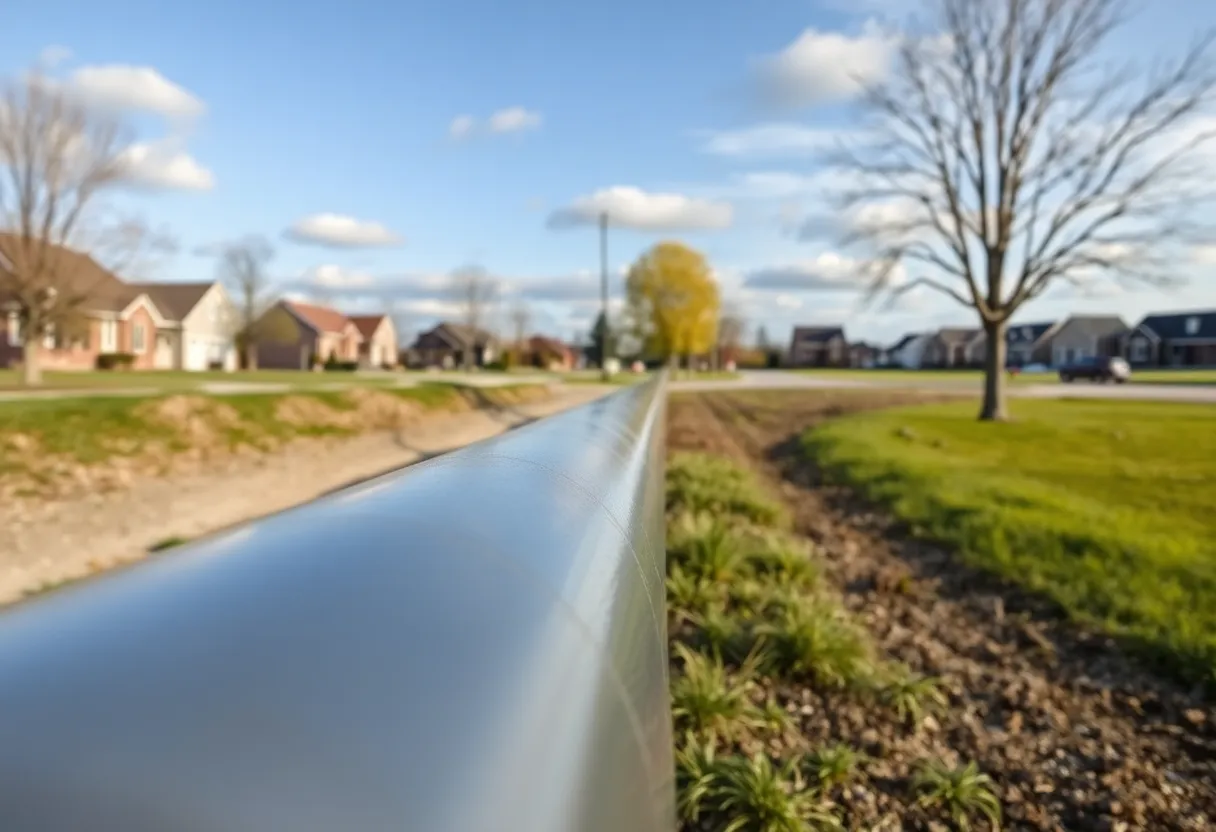News Summary
The Pennsylvania Department of Environmental Protection has mandated Sunoco to clean up a jet fuel leak in Upper Makefield Township to ensure residents have access to safe drinking water. The order includes the installation of recovery wells and ongoing monitoring of environmental impact. Concerns from the community have led to investigations and a class action lawsuit, emphasizing the health risks associated with the contamination.
Pennsylvania DEP Orders Cleanup of Sunoco Pipeline After Jet Fuel Contamination
In a significant development for the residents of Upper Makefield Township, the Pennsylvania Department of Environmental Protection (DEP) has reissued a comprehensive administrative order directing Sunoco to address the cleaning of a pipeline that has leaked jet fuel into the environment. This order is pivotal in ensuring that the community has access to clean drinking water and that Sunoco is held responsible for the environmental mishap.
What the Order Entails
The DEP’s six-point order sets clear mandates for Sunoco, which includes the installation of recovery wells on Glenwood Drive as part of their remediation efforts. The company is required to provide clean water to residents affected by the contamination, submit a detailed implementation schedule, and outline an interim remedial action plan. Additionally, they are tasked with reporting on vapor intrusion investigation progress. This framework indicates a rigorous approach to tackling the pollution crisis.
Ongoing Monitoring and Assessments
Since the jet fuel leak was detected in late January, the DEP has been proactively monitoring the affected area. Their efforts include inspections, field assessments, stream evaluations, and well water sampling through their Environmental Cleanup and Brownfields and Clean Water programs. The community remains engaged, as highlighted by the recent town hall meeting held on April 24, where residents could voice their concerns and receive updates on the state of affairs.
Collaboration with Authorities
To ensure a thorough response, the DEP is collaborating with various federal and state agencies, including the U.S. Pipeline and Hazardous Materials Safety Administration and the Pennsylvania Health Department. This cooperative effort highlights the seriousness of the issue at hand and the commitment to restoring the community’s environment.
The Leak’s Impact
The jet fuel leak originated from a 14-inch diameter pipeline owned by Sunoco and was identified in January. During initial response efforts, light non-aqueous phase liquid was found in the groundwater. This alarming discovery prompted immediate cleanup operations, particularly as several residential wells became contaminated. Recovery well activities will be conducted from 9 a.m. to 5 p.m. Monday through Saturday, aiming to alleviate the community’s predicament.
Residents Raise Concerns
Residents are understandably troubled by the situation. Concerns have been raised not only about access to safe drinking water but also about air quality and potential soil contamination. Many have reported health issues that they believe are linked to the contamination. Community members, such as Miles Meng and Brenda Saget Darling, have expressed their distress regarding the spill’s impact on both their wellbeing and their local environment.
Investigation and Legal Action
In response to the leak, the Pennsylvania Attorney General has initiated an investigation into the pipeline spill. Furthermore, a class action lawsuit has been filed against Sunoco Pipeline and its parent company, Energy Transfer, representing over 150 affected residents. The legal complaint outlines serious ongoing threats to public health, property values, and the local ecosystem stemming from the contamination.
Federal Response and Future Steps
As part of their remedial strategy, Energy Transfer is implementing directions from federal regulators, including conducting metallurgical tests on the compromised pipe. Interestingly, Sunoco has disputed some federal findings regarding the leak’s duration, claiming they only became aware of the issue’s breadth in January. Some residents have reported unusual gas odors in their drinking water as early as September 2023, long before the official identification of the leak.
The Bigger Picture
Additionally, the Twin Oaks Pipeline, which transports hazardous liquids, has been instructed to operate at reduced pressure by federal safety regulators. Both the DEP and the federal Pipeline and Hazardous Materials Safety Administration have acknowledged that the pipeline may have been experiencing leaks for a considerable period, with contamination complaints surfacing as early as September 2023.
As Upper Makefield grapples with these challenges, the community remains hopeful that the measures put into place will ensure a swift recovery and safer environment for all residents moving forward.
Deeper Dive: News & Info About This Topic
- 6abc News
- The Reporter Online
- Patch
- CBS News
- Bucks County Herald
- Google Search: Upper Makefield Pipeline Leak
- Wikipedia: Pipeline Safety in the United States
- Encyclopedia Britannica: Environmental Protection
- Google News: Pipeline Jet Fuel Leak Upper Makefield
- Google Scholar: Jet Fuel Pipeline Leak Environmental Impact







